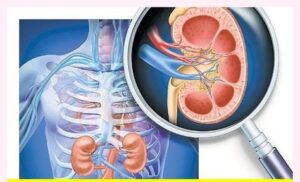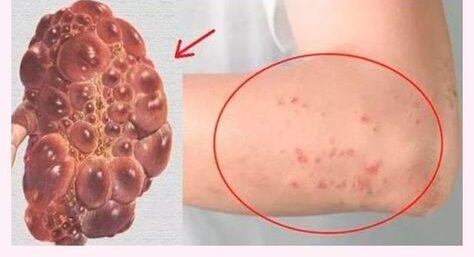(Stay tuned for Part 2/4, where we’ll cover five additional warning signs!)
How Diet Impacts Kidney Health
Foods That Support Kidney Function
What you eat plays a crucial role in maintaining kidney health. Incorporating nutrient-dense foods into your diet can support proper kidney function and reduce strain on these vital organs. Here are some examples:
Incorporating these ingredients into your meals can make a noticeable difference in how your kidneys perform.

Foods to Avoid for Better Kidney Health
On the flip side, certain foods place extra stress on your kidneys and should be limited or avoided altogether. These include:
- Processed meats: High in sodium, which raises blood pressure.
- Sugary beverages: Linked to obesity and diabetes, two major risk factors for kidney disease.
- Excessive protein intake: Too much protein forces your kidneys to work harder than necessary.
By making mindful choices, you can protect your kidneys and promote overall wellness.
When to See a Doctor
Recognizing Urgent Symptoms
Some symptoms warrant immediate medical attention. Don’t hesitate to contact your doctor if you experience:
- Severe nausea or vomiting.
- Shortness of breath.
- Sudden decrease in urine output.
These could indicate acute kidney injury or other serious conditions requiring prompt treatment.
Diagnostic Tests for Kidney Function
If you suspect something’s wrong, your doctor may recommend several tests to assess your kidney health:
- Blood tests: Measure estimated glomerular filtration rate (eGFR) to gauge how well your kidneys are filtering waste.
- Urine tests: Check for albumin-to-creatinine ratio (ACR) to detect protein leakage.
- Imaging scans: Ultrasounds or CT scans provide detailed images of your kidneys’ structure.
Early diagnosis ensures timely intervention, potentially preventing further damage.
Conclusion – Listen to Your Body
Your kidneys play a pivotal role in keeping you alive and thriving. Yet, their problems often remain hidden until significant damage has occurred. By understanding these 10 signs your kidneys are not working properly , you empower yourself to seek help early and make lifestyle changes that truly matter. Remember, prevention is always better than cure.
Stay tuned for Part 2/4, where we’ll uncover five additional warning signs that could save your life. Until then, take charge of your health by listening closely to your body’s signals.
FAQ Section
What Are the First Signs of Kidney Trouble?
The earliest indicators often include persistent fatigue, swelling, and changes in urination patterns. Don’t dismiss these symptoms—they could be telling you something important.
Can I Reverse Kidney Damage?
While some damage is irreversible, managing underlying conditions like diabetes and hypertension can slow progression significantly. Early intervention is key.
How Do I Know If My Kidneys Are Failing?
Advanced symptoms like severe fatigue, confusion, and fluid buildup suggest kidney failure. Seek medical advice promptly if you notice these signs.
Is It Possible to Have No Symptoms Even With Kidney Issues?
Absolutely. Many individuals show no outward signs until their condition worsens. Regular screenings are vital, especially if you have risk factors.
Where Can I Learn More About “10 Signs Your Kidneys Are Not Working Properly”?
Check out our series (Part 1/4 through Part 4/4) for comprehensive guidance tailored to your needs.
Call-to-Action
Don’t wait until it’s too late. Start prioritizing your kidney health today by scheduling a routine checkup with your doctor. Share this article with friends and family who might benefit from learning these critical warning signs. Together, let’s spread awareness and take proactive steps toward healthier lives!

